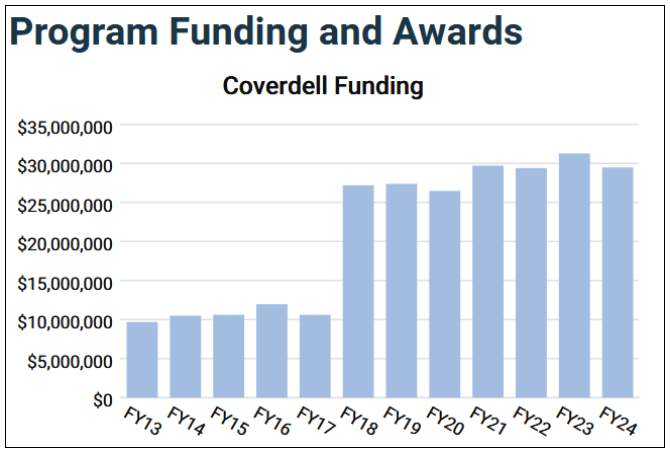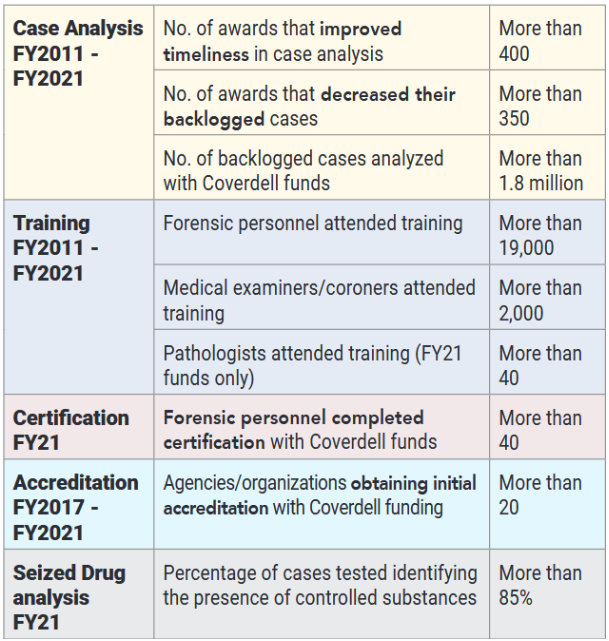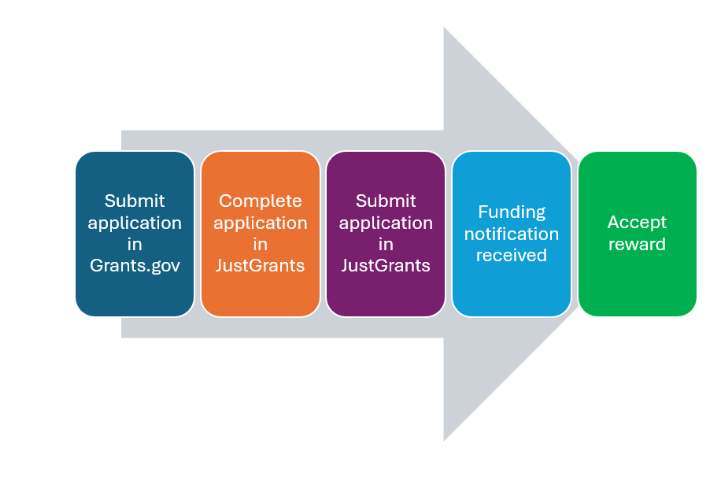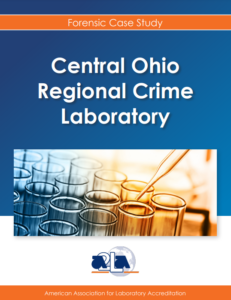 The Paul Coverdell National Forensic Science Improvement Act of 2000, which became public law (106-561), was established to improve the quality, efficiency, and integrity of forensic science services within the criminal justice system. To achieve this objective, the Paul Coverdell Forensic Science Improvement Grants Program (also referred to as the Coverdell Grant) awards federal funding to states and units of local government to aid crime laboratories and medical examiner’s offices to enhance the quality and timeliness of forensic science and medical examiner services. In collaboration with the Justice for All Act of 2004, these funds can be utilized to address the backlog in the analysis of forensic evidence, provide training for forensic science practitioners, and acquire necessary equipment, instrumentation, and laboratory supplies. Additionally, it also provides support for crime laboratories and medical examiners’ offices to obtain and retain accreditation.
The Paul Coverdell National Forensic Science Improvement Act of 2000, which became public law (106-561), was established to improve the quality, efficiency, and integrity of forensic science services within the criminal justice system. To achieve this objective, the Paul Coverdell Forensic Science Improvement Grants Program (also referred to as the Coverdell Grant) awards federal funding to states and units of local government to aid crime laboratories and medical examiner’s offices to enhance the quality and timeliness of forensic science and medical examiner services. In collaboration with the Justice for All Act of 2004, these funds can be utilized to address the backlog in the analysis of forensic evidence, provide training for forensic science practitioners, and acquire necessary equipment, instrumentation, and laboratory supplies. Additionally, it also provides support for crime laboratories and medical examiners’ offices to obtain and retain accreditation.
From FY 2002 to FY 2024, more than 1,780 Coverdell Grant awards were received by states and units of local government. From FY 2017 to FY 2021, more than 20 agencies obtained initial accreditation after being awarded the Coverdell Grant. See Figure 1 and Figure 2 for more information.

The Coverdell Grant must be utilized for the following purposes:
1. Improvement in the quality and timeliness of services provided by crime laboratories or medical examiners offices in the state
2. Elimination of a backlog in the analysis of forensic science evidence
3. Training, assistance, and employment of forensic laboratory personnel
4. Address emerging forensic science issues (for example statistics, contextual bias, and measurement uncertainty) and forensic science technology
5. Training and education of forensic pathologists
6. Facilitation of accreditation and certification

The American Association for Laboratory Accreditation (A2LA) is dedicated to the formal recognition of forensic testing, calibration, and inspection organizations. Through the Forensic Examination Accreditation Program, organizations will be assessed to international standards and applicable supplemental requirements thus ensuring the organization’s competence in performing forensic testing, calibration, and inspection activities.
Crime laboratories and medical examiner’s offices interested in becoming accredited by A2LA and applying for the Coverdell Grant can request an accreditation cost estimate by filling out a simple form found on the A2LA website. A2LA is one of the most transparent organizations pertaining to the fee structure.
Upon the request of the organization, A2LA will provide a free, no-obligation estimate of costs associated with accreditation of the organization. The estimate of accreditation cost may be important in the process of completing the grant application(s). Grant applications may require basic organizational information, explanations of proposed activities, and financial data. According to Grants.gov, the application and review processes may take time, so it is imperative to prepare and have all the required information and documentation ready.

To learn more about the Paul Coverdell Forensic Science Improvement Grants Program and other potential funding opportunities, visit the following website: https://bja.ojp.gov/program/coverdell/overview.
Benefits of Accreditation
 There are many benefits to earning a forensic examination accreditation from a third-party, non-profit organization. For example, it confirms quality and confidence in your test results to customers and to judicial and regulatory authorities. It earns your organization public trust, bolsters your credibility within the legal system, and allows you to stand out from your competition.
There are many benefits to earning a forensic examination accreditation from a third-party, non-profit organization. For example, it confirms quality and confidence in your test results to customers and to judicial and regulatory authorities. It earns your organization public trust, bolsters your credibility within the legal system, and allows you to stand out from your competition.
The Central Ohio Regional Crime Laboratory is an A2LA accredited laboratory with support from the Coverdell Forensic Science Improvement Grants Program. Read their story in this A2LA Accreditation Case Study.
Take the first step in building quality and confidence in your organization. Click here to request an estimate. For more information about accreditation, contact A2LA at info@A2LA.org or call 301-644-3248.
Resources
Paul Coverdell Forensic Science Improvement Grants (Coverdell) Program. Forensics TTA Program. https://www.forensicstta.org/programs/paul-coverdell-forensic-science-improvement-grants-coverdell-program/#resources-coverdell
Paul Coverdell Forensic Science Improvement Grants Program- Overview. U.S. Department of Justice – Office of Justice Programs. https://bja.ojp.gov/program/coverdell/overview
Paul Coverdell Forensic Science Improvement Grants Program- About the Program. U.S. Department of Justice – Office of Justice Programs. https://bja.ojp.gov/program/coverdell/about-program
Bureau of Justice Assistance. Paul Coverdell Forensic Science Improvement Grants Program. U.S. Department of Justice- Office of Justice Programs- Bureau of Justice Assistance [Fact Sheet]. https://bja.ojp.gov/doc/fs-coverdell-forensic-science-program.pdf
Paul Coverdell National Forensic Science Improvement Act, Public Law 106-561. (2000).
American Association for Laboratory Accreditation. A2LA FAQs. https://a2la.org/faq/
American Association for Laboratory Accreditation. Forensic Examination Accreditation Program. https://a2la.org/accreditation/forensics/
Borchardt, A. & Jeffries, J. (2021, March 16). Grantee Webinar: Paul Coverdell and DNA Capacity Enhancement for Backlog Reduction Programs [Webinar]. Bureau of Justice Assistance. https://bja.ojp.gov/media/video/35456
